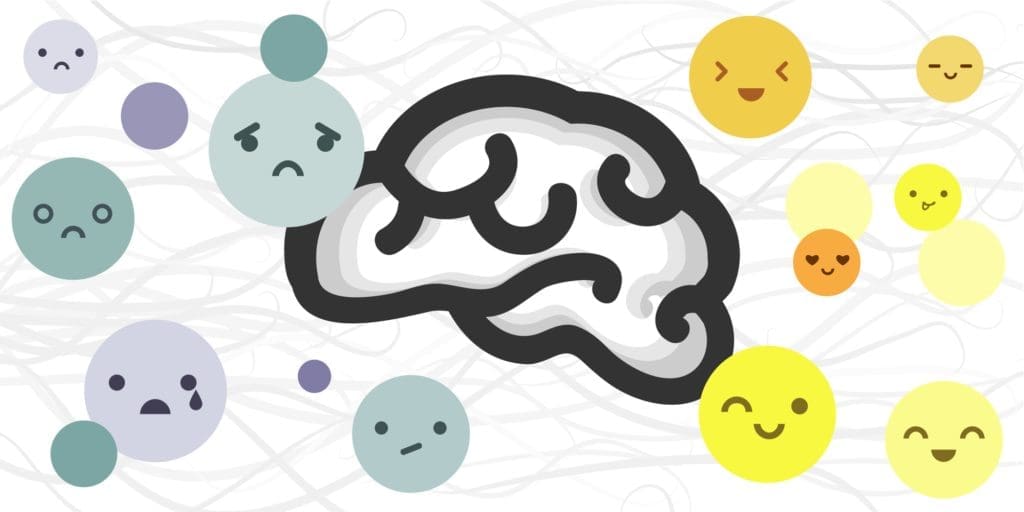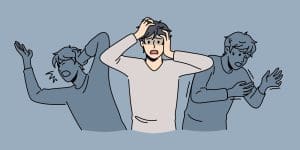Healthy coping mechanisms are great tools for everyone. Even if you don’t have a mental health condition, you still get stressed and upset, and having tolls to deal with those emotions can make a big difference. But when you live with a mental health disorder, having mental health coping skills becomes even more important.
According to numbers released by the Florida Health Behavioral Association, Florida ranks 44th out of all 50 states in access to professional mental health care. In fact, 61% of Floridians with mental health issues receive no treatment at all. These numbers make developing positive mental health coping skills even more important for managing mental illness symptoms. But even more important than knowing coping skills is to make sure that you’re using healthy mental health coping skills.
Contents
How to Tell Between Unhealthy and Healthy Coping Skills

Healthy coping skills are positive, productive ways to deal with life’s stressful situations. And what these look like will depend largely on you and your interests. Some people may enjoy exercise or spending valuable time with their loved ones, while others may prefer focusing on hobbies or engaging in other recreational activities.
However, not all mental health coping skills are healthy. Unhealthy coping skills are activities that are self-destructive or focus on avoiding confronting problems in your life. Engaging in self-harm, substance abuse, or other practices that “solve” your feelings about the problem but don’t lead to healthy resolution of issues. So how do you tell the difference between healthy vs unhealthy coping mechanisms?
The difference between healthy and unhealthy coping skills is that healthy coping skills lead to the problem being resolved in a way that reduces stress and harm, while unhealthy ones don’t. For example, if you’re stressed at work, drinking to cope is an unhealthy coping skill, since it does not solve your problem and could lead to self-destructive behavior. But in that same situation, engaging in your hobbies could help you work through that stress while improving your mood, which makes it a healthy coping skill.
It’s common for people with mental health issues to rely on unhealthy coping skills to deal with their stress. While they may not help cure the problem, they give feelings of instant relief that can be hard to break away from. But there are other, healthier ways to manage negative feelings that will serve you better in the long term.
Different Types of Positive Mental Health Coping Skills
Positive mental health coping skills can be broken down into two categories: problem-centered and emotion-centered. Each one of these styles has its uses; the important thing is to use them in the right situations.
Emotion-Centered Coping Skills
Emotion-centered coping skills are aimed at managing the emotions associated with a stressful situation, rather than changing the situation itself. Sometimes, changing the thing that upsets you just isn’t an option. Instead, focusing on your emotional state and using mental health coping skills that help you calm down and center yourself when you’re feeling unstable helps to manage this stress until we can overcome it.
Problem-Centered Coping Skills
Problem-centered coping skills are what we use when something in your life or environment is causing stress, such as an unhealthy relationship or living situation. These skills focus on taking control of the situation causing you stress, seeking information or assistance in handling it, and removing yourself from the stressful situation.
How Mental Health Programs Help Develop Coping Skills
Mental health coping skills can do a world of good for managing mental illness symptoms—but they can be hard to develop on your own. This is especially true for people living with mental health conditions, which can be particularly overwhelming. For these people, enrolling in a mental health program can give them a space to focus on developing mental health coping skills.
Mental health programs are professional treatments that help patients learn healthy coping skills to manage their specific health issues. Medication, therapy, and other treatments can be helpful in targeting the cause of mental health issues, but learning to manage negative feelings in a healthy way is the real key to a fulfilling life.
In a mental health program, you’ll work with mental health experts to create a personalized treatment plan and develop reliable mental health coping skills. Many programs offer group therapy sessions so that you can share your thoughts and experiences with others who understand what you’re going through. Supplemental therapies such as recreational, art, or music therapy can also help you learn new, engaging activities to channel your energy into.
The most common form of therapy in mental health programs is cognitive behavioral therapy (CBT). CBT is a form of talk therapy that is used to treat a wide range of mental health disorders by focusing on the ways we process and react to events around us. CBT helps you become aware of your thought process so that you can work towards a more positive and constructive way of thinking. This is the process where many people learn healthy coping skills.
Mental Health Specialists in Port St. Lucie, Florida

If you’re struggling to develop positive mental health coping skills, a treatment program may be exactly what you need. At Port St. Lucie Hospital, we’re ready to help you take this step. No matter what your unique situation is, our specialized treatment programs can help you achieve your goals.
Our adult mental health program combines group and individual therapy, medication management, and a supportive recovery environment to give you the tools you need to change your life. We also offer dual diagnosis treatment for those with co-occuring mental health and substance abuse issues, as well as immediate crisis care services for those going through mental health emergencies.
If you have questions about how to improve your general emotional health or if a residential treatment center is right for you, call us today at (772) 335-0400 or contact us through our online contact form.


























